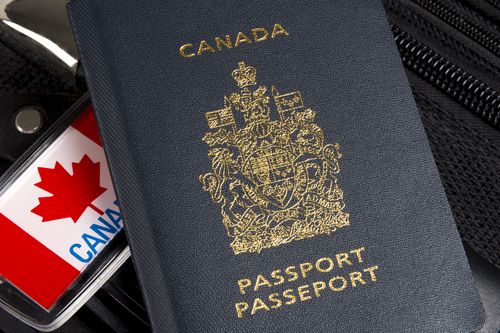Breaking
Naturalized Canadians, dual citizens possible targets of new bill redefining citizenship
VANCOUVER – Canada’s long-enjoyed reputation as an immigrant’s Promised Land is now under serious fire. It seems that the days of the Great White North being a melting pot for cultures the world over are coming to an end, as the Harper administration continues to implement sweeping reforms to many programs bearing significant impact on the status of immigrants to the country.
Among the latest legislative changes is a proposed new law that will basically make Canadian citizenship harder to acquire, and easier to lose.
The ramifications of the C-24 bill redefining Canadian citizenship – which will enable millions of Canadians to be stripped of their acquired citizenship – are worrisome, says the British Columbia Civil Liberties Association (BCCLA), which believes that naturalized citizens and those holding dual citizenship are the targets of the bill.
Carmen Cheung, senior counsel of BCCLA said: “Canadian citizens who are dual citizens are particularly vulnerable to the citizenship-stripping provisions because under the law if you only hold one citizenship then they can’t take that away from you.”
“But if you hold two citizenships, a dual citizenship or if you are even eligible for dual citizenship, then all of these citizenship-stripping provisions come into effect and so that in effect creates categories of Canadians and we know that oftentimes, the people who are dual citizens are immigrants or they’re new to Canada, and so it disproportionately impacts new Canadians and immigrants,” she explained further.
Apart from these implications, the new law also:
• Extends the residency requirement from three years to four years, with a minimum 183 days’ stay in Canada per year in four out of six years; thereby making it more difficult to acquire citizenship
• Allows for an application to be denied if there is doubt in the applicant’s “intent to reside” in Canada. Further, applications that are turned down can no longer be appealed
In an report carried by ABS-CBN News, Vancouver bureau, Immigration consultant Arlene Tungohan had this to say about the matter: “For purposes of halimbawa, sa negosyo mo, for family emergency, you had to go home, and napag-initan ka, pwedeng i-revoke ang citizenship mo – dadalihin ka sa intent to reside. so iyon ang nakakatakot na provision. The other provision that I really find troubling is yung pwede tayong mag-dual citizen. Pag-dual citizen ka at meron silang nakita na halimbawa nong mag-p.r. (permanent resident) ka, meron kang hindi nasabi, merong fraud o basta may hindi ka nasabi, pwedeng balikan ang iyong citizenship and revoke it.”
The new bill is also aimed at stripping the citizenship of those suspected of terrorist activity, organized crime, or loyalty offenses (such serving in the military of a country fighting against Canada.)
Additionally, the BCCLA is wary about another possible amendment which strips the right of Canadian citizenship by birth.
The Canadian government has posited that non-residents are abusing this right, so that their Canada-born children, therefore Canadian citizens, can eventually sponsor them into the country.
“There was a memo that was written by Canadian government officials which looks like it was assessing a proposal that they eliminate citizenship by birth on Canadian soil. We’ve heard reports that this is going to be the next piece of legislation that is going to be tabled and so we are incredibly concerned that this is going to be something that will be before parliament soon,” Cheung said.
Statistics, however, indicate that these types of births do not even account for one percent of total annual births in Canada.
Several organizations have gotten behind the cause of pushing to revoke bill C-24.
“We have to continue giving voice of our community. It’s really negatively impacting our human rights and our constitutional law and citizenship,” Migrante BC’s Beth Dollaga said.
Likewise, the Canadian Association of Refugee Lawyers and the BCCLA have decided to oppose the bill and the encompassing amendments to Canada’s citizenship law by filing a lawsuit against it.
Private citizens have also expressed their opposition to the bill, with more than 45,000 Canadians signing an online petition to eradicate bill C-24.






















